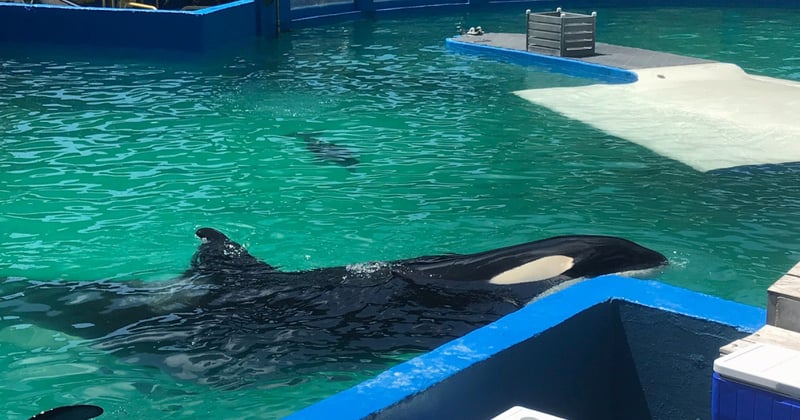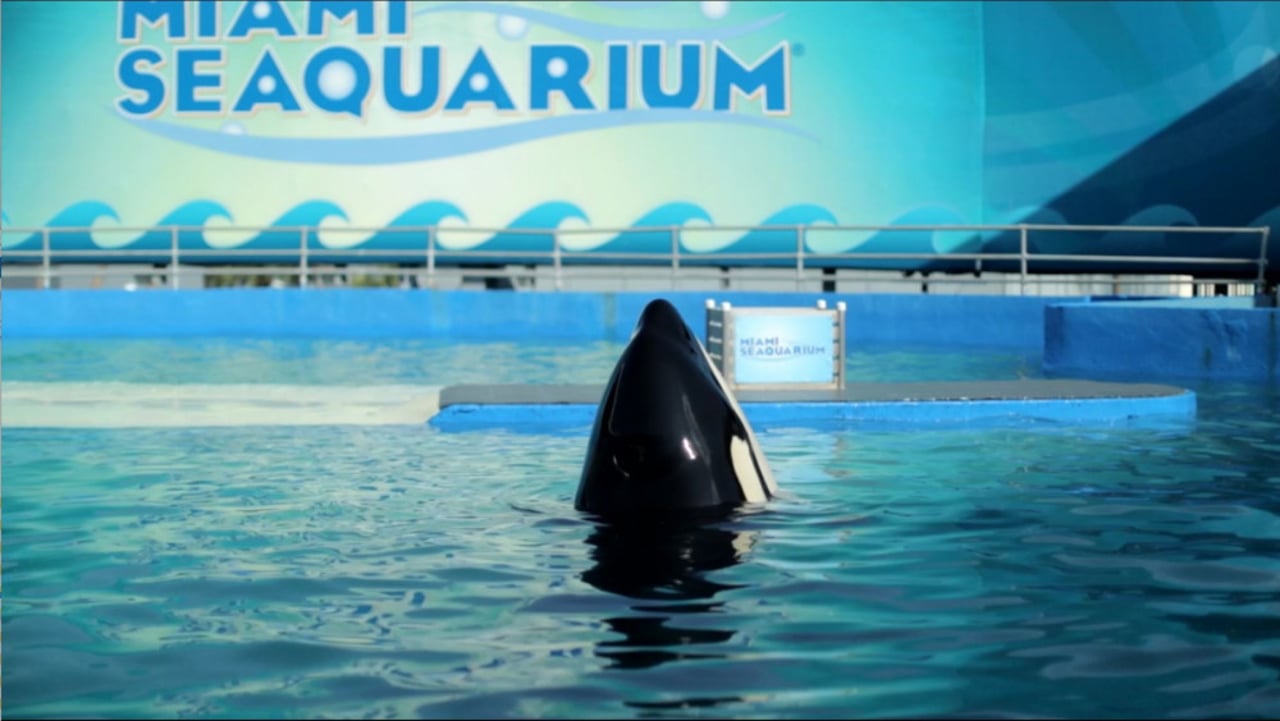
Tokitae (Lolita) has died after 52-years in captivity
News
Tokitae (also known as Lolita and sk'aliCh'elh-tenaut), the last surviving Southern Resident killer whale in captivity, died Friday afternoon at the Miami Seaquarium after suffering for more than half a century in captivity.
In a somber announcement, the Miami Seaquarium shared the heartbreaking news of Tokitae’s passing on Friday August 18, 2023. Tokitae (also known as Lolita), an orca who had been living in captivity at the facility since 1970, succumbed to what is believed to be a kidney condition.
Originally given a name that signifies 'bright day, pretty colours' in the Chinook language, she was subsequently commercially rebranded as 'Lolita' for performance purposes.
The 57-year-old orca was affectionately known as ‘Toki’ and held deep significance for the Lummi Nation, a Native American tribe based along the coasts of Washington state and southern British Columbia – the same waters where she was captured. The Lummi Nation refer to her as Sk’aliCh’elh-tenaut, and view her as a member of their family, qwe lhol mechen, their 'relative under the water'.
Tokitae’s story
Tokitae's life in captivity began in 1970 when she was caught in the infamous Penn Cove captures. At that time, a U.S.-based company had a mission: to source orcas for the rapidly expanding marine park industry. In the month of August 1970, they employed an extensive operation involving boats, planes, and even explosives.
Their goal was to corral a group of Southern Resident orcas into the shallows of Penn Cove, near Seattle. It all began with the heart-wrenching separation of distressed, wailing mothers from their calves. Tragically, some orcas became entangled in the nets, losing their lives in the process.
Meanwhile, the surviving young calves were plucked away and dispatched to marine parks worldwide, although most met their untimely demise within a short span of time.
Tokitae was only around 4-years old when she was stolen away from her family, the L-pod. She would go on to endure captivity in horrific conditions for a staggering 52 years, confined within what has come to be known as the smallest orca tank in North America, sadly referred to as the 'Whale Bowl'.
This tank was a mere 80 feet by 35 feet (24 meters by 11 meters) and only 20 feet (6 meters) deep. Tokitae herself measured 22-feet in length, so she could not dive deep depths or swim far distances as she would in the wild. In 1980, when her tankmate Hugo died, and since then Tokitae had been without the companionship of her own species. As a result of these drastically unnatural conditions, there have been reports of Tokitae being observed displaying stereotypies – repetitive behaviours often indicative of psychological distress. Behaviours such as chewing on the concrete tank, resurfacing at the same spot repeatedly, and pacing back and forth.
Tokitae in her tiny tank at the Miami Seaquarium | Credit: Miguel Endara / We Animals Media
Over the last few years, Tokitae’s health has been in decline, and on Friday August 18, Tokitae succumbed to what is believed to be a kidney issue. A beautiful event took place while Tokitae was dying – a rare meetup of three orca families, the J, K, and L pods, occurred off the Pacific Coast. Whether this was a coincidence or not, some believe this is Tokitae’s family welcoming her home.
Plans to release Tokitae
Tokitae became a focus for animal rights campaigners, protestors and lawyers, who fought for the orca's release for years with the hope that she might even be able to be reintegrated into her pod. In fact, the very orca believed to be Tokitae's mother continues to thrive in her 90s, serving as the matriarch of the pod. All cries for her release were ignored for years.
The Lummi Nation saw it as their sacred obligation to bring Sk’aliCh’elh-tenaut back to her ancestral home of the Salish Sea and fought diligently for her release.
Eventually, in March of this year, plans were made for Tokitae to be moved to an ocean sanctuary off the coast of Washington State and Canada, where she would have been able to swim in a netted-off area of her home waters with continuous human care. She was set to be released into the very waters her family members still inhabit.
While Tokitae’s release never came to fruition, her story remains a poignant reminder of the challenges faced by animals in captivity and the necessity of pursuing more compassionate and respectful treatment of these incredible beings.
As we remember Tokitae, let us also reflect on the broader narrative of animals used for entertainment, advocating for their rights to live freely or allowing them to thrive in environments that mirror their natural homes.
Advocating for animals like Tokitae
We must remember, Tokitae isn’t the only animal living out her life in unnatural and cruel conditions.
Not long ago, we were honouring the life and death of Kiska, another captive orca, who lived her life in solitary confinement at Marineland in Niagara Falls, Ontario. Thousands of sentient wild animals just like Tokitae and Kiska continue to suffer in captivity around the world.
We must continue to fight for these animals, and prevent more sentient creatures being bred, captured or used for entertainment. Whether bred in captivity, or captured from the wild, making wild animals perform for tourists is harmful, outdated, and needs to end.
Tokitae’s story serves as yet another powerful call to action to end the captive whale and dolphin entertainment industry once and for all.
Help put an end to wildlife captivity
Your gift today can help stop their suffering by supporting the end of their captive breeding, wild capture, and use for entertainment for good. Together we can change tourism so that dolphins and other cetaceans like Sk’aliCh’elh-tenaut, can remain in their pods. Let’s make this the last generation to be trapped in tanks.
Help us expose corporations that profit off the suffering of these beautiful animals and instead encourage, support, and promote alternatives like Whale Heritage Sites and sea sanctuaries.
Banner Image: Emily Huggins
